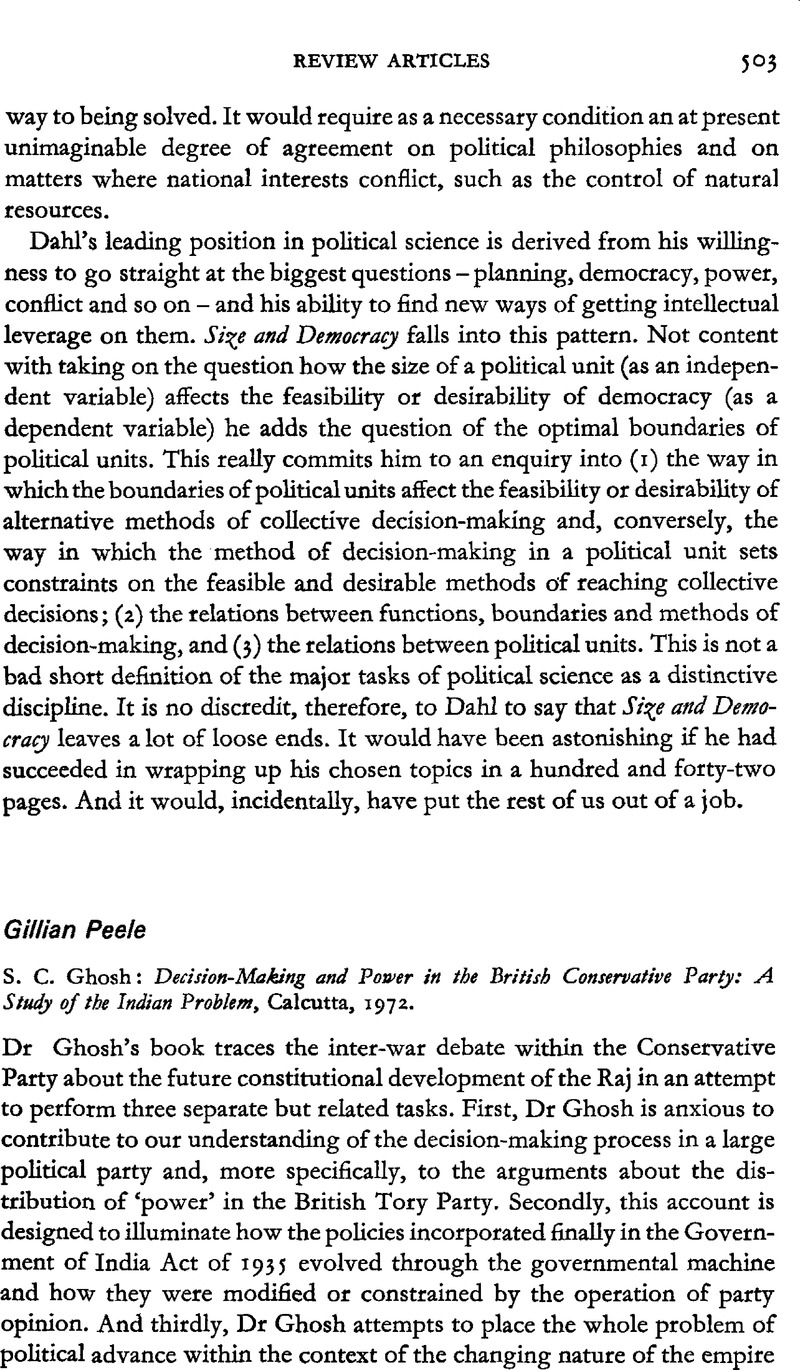No CrossRef data available.
Published online by Cambridge University Press: 28 March 2014

1 I am at the moment working on a study of the Conservative Party in the inter-war years which will cover some of this ground.
2 McKenzie, R., British Political Parties, 2nd Edition, London, 1964.Google Scholar
3 Beer, S., Modern British Politics, London, 1965.Google Scholar
4 Pinto-Duschinsky, M., ‘Central Office and ‘Power’ in the Conservative Party’, Political Studies, XX, 03, 1972, pp. 1–16.Google Scholar
5 Robinson, James A. & Majak, R. Roger, ‘The Theory of Decision-Making’ in J. C. Charlesworth (ed.), Contemporary Political Analysis, New York, 1967, pp. 177–88.Google Scholar
6 Cmd. 4268.
7 See the discussions within the Cabinet Committee on India (CAB/27/520, Meeting 34, April 12, 1934); also Baldwin to Salisbury, 23 March, 1930, Salisbury Papers: and the correspondence between Chamberlain and Baldwin in the Austen Chamberlain Papers. (AC 22/3/17 & AC 22/3/18). The provision for direct election to the Council of State was replaced in the bill when it came before the House of Lords.
8 Many back benchers were in the same difficulty as Viscount Knebworth, Conservative MP for North Herts, of whom his father wrote: ‘His sympathies were undoubtedly with the school that regarded the White Paper as one of surrender, but the more he studied the subject, the more difficult he found it to support this attitude with his reason.’ The Earl of Lytton, Antbony (London, 1935).
9 If any scholar dare use these terms with impunity now! For a provocative summary of recent trends in Indian history and the position of these ideas see Seal, Anil, ‘Imperialism and Nationalism in India’ in J. Gallagher, G. Johnson, & A. Seal (Eds.), Locality, Province and Nation: Essays on Indian Polifics 1870–1940 (Cambridge, 1973) pp. 1–27.Google Scholar